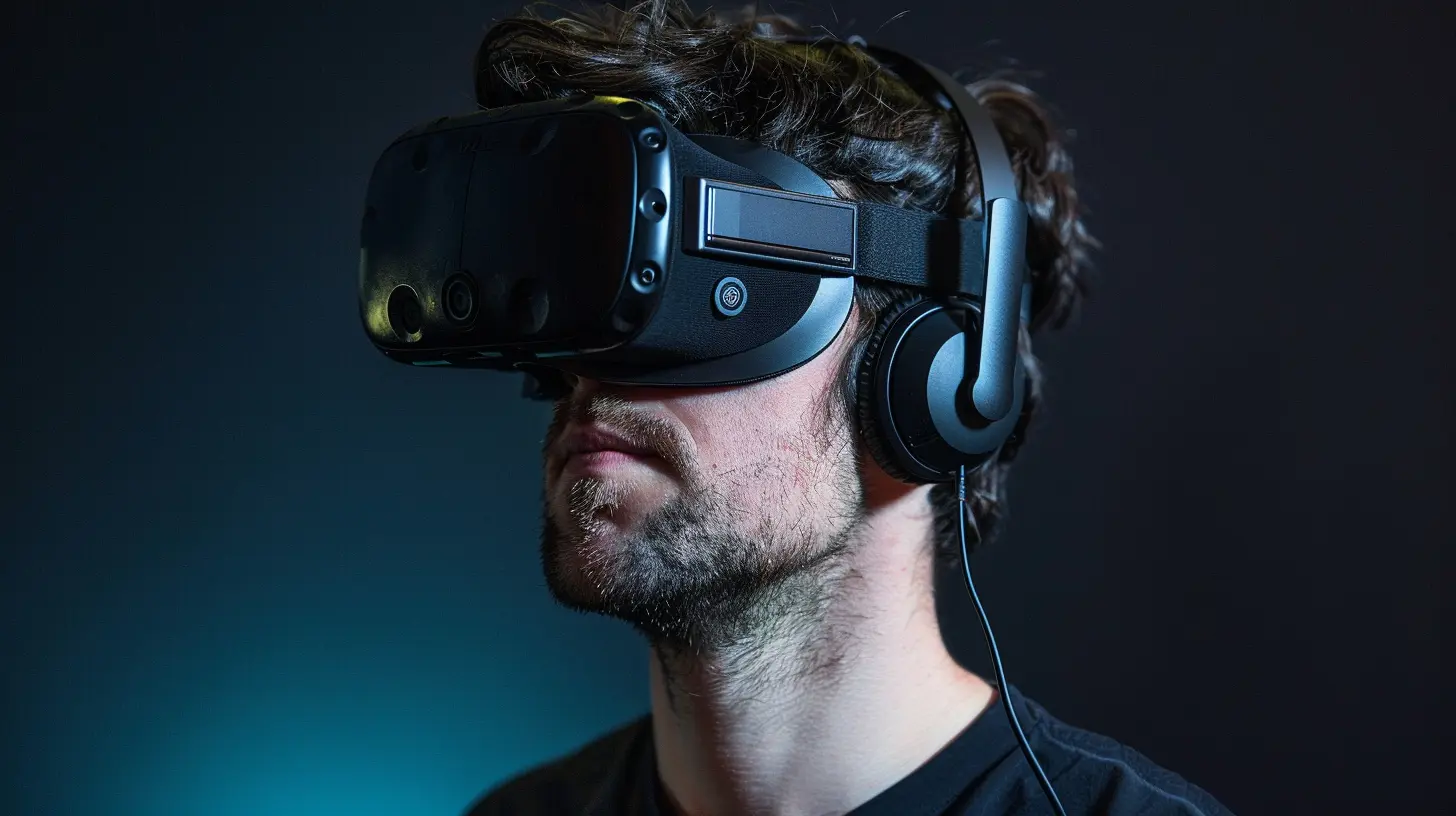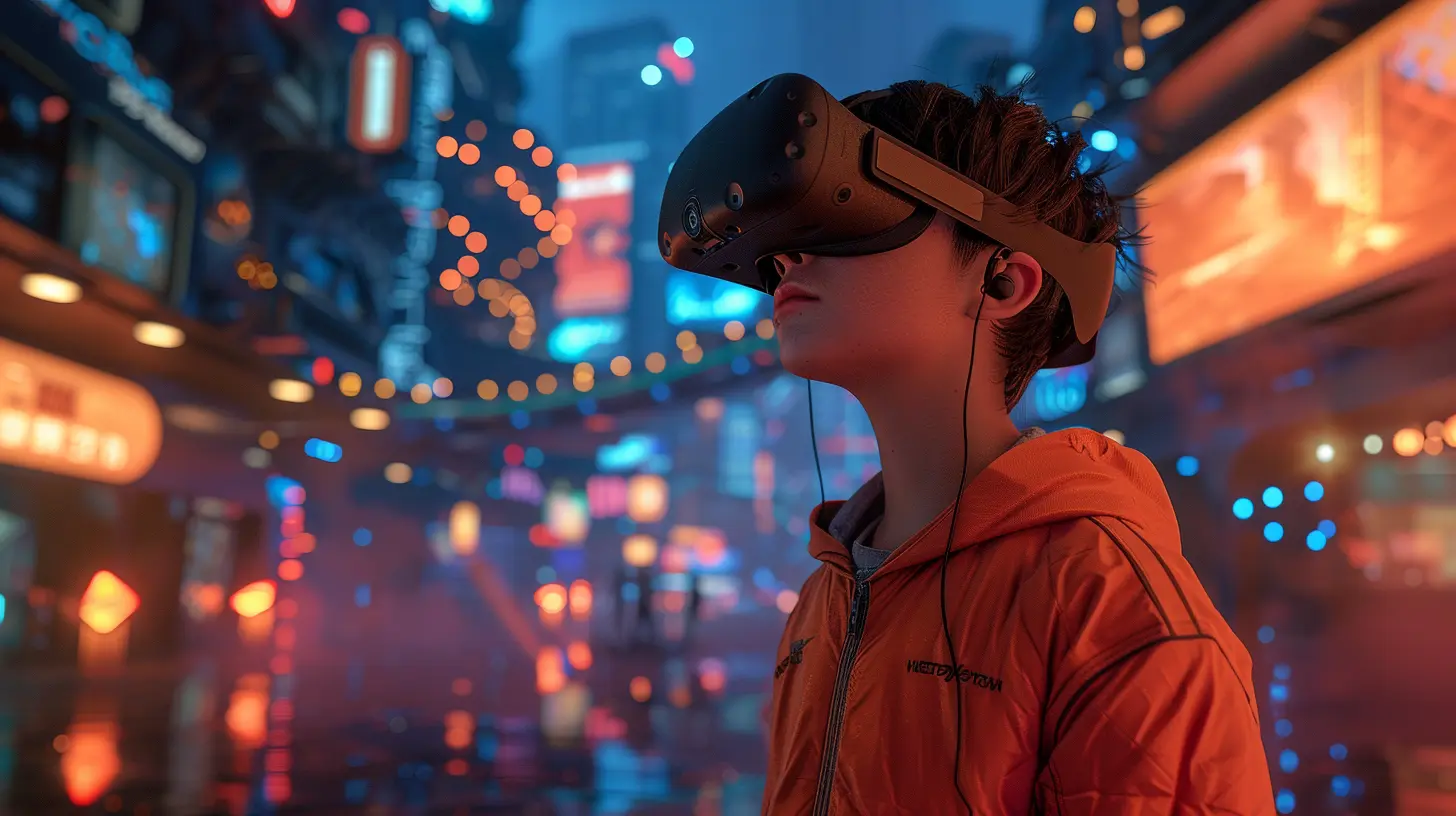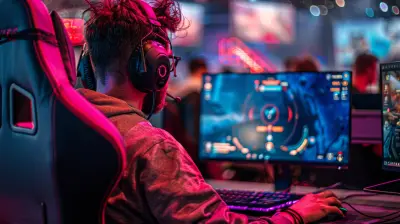How the Metaverse Could Impact the Future of VR Gaming
20 August 2025
Virtual reality gaming is already a wild ride—but what happens when you toss the metaverse into the mix? We're not just talking sharper graphics or cooler headsets. We're talking about a complete shift in how we experience games, how we connect with each other, and how deep we can dive into virtual worlds.
So if you're a gamer, a tech enthusiast, or just someone with a curious mind, buckle up. Let’s dive into the whirlwind of what the metaverse could mean for VR gaming and how it might just reshape the future of interactive entertainment as we know it.
What is the Metaverse Anyway?
Before we get lost in a digital dreamland, let's make sure we’re all on the same page. What exactly is the metaverse?Think of the metaverse as an immersive, interconnected network of 3D virtual spaces where users can interact with each other and with computer-generated environments in real time. It’s not owned by one company or limited to one platform. Instead, it’s a shared, persistent digital universe designed to blend the lines between the physical and virtual worlds.
Imagine the internet came to life—not on your phone or your monitor—but all around you through a VR headset. That’s the metaverse in a nutshell.
Where VR Meets the Metaverse
Now that you get the gist of the metaverse, let’s talk about its best buddy: virtual reality. VR is the tech that takes you from your couch to another world. Whether you're wielding a lightsaber, exploring alien planets, or building blocky worlds in Minecraft VR, it’s VR that does the transporting.But here’s the thing—VR as we know it is mostly a solo experience, or occasionally a multiplayer match. Add the social and interactive layers of the metaverse, and suddenly VR gaming doesn't just become more immersive—it becomes a whole new universe of possibility.
The Evolution of VR Gaming: From Isolated Play to Connected Worlds
Let’s take a step back. Remember the early days of VR gaming? It was clunky, kind of isolating, and mostly experimental. Fast forward a few years, and we’ve got full-body tracking, haptic feedback suits, and wireless headsets that can drop you into another world in seconds. Progress? Big time!But even with all those advances, the experience has mostly been limited to short play sessions or confined virtual spaces. That’s where the metaverse swoops in like a plot twist in your favorite RPG.
By integrating VR into the broader metaverse, the experience shifts from being a one-off thrill ride to a living, breathing virtual society. Gamers can meet, interact, trade, build, and tell stories in expansive virtual worlds that never switch off.
In short—VR is the stage. The metaverse? That’s the whole play.
Personalized Avatars and Digital Identities
In the metaverse, your in-game character isn’t just a skin—it’s your digital identity. Imagine customizing your avatar down to the tiniest detail, not just for fun, but as a reflection of who you are (or want to be) in that space.You’ll be able to express yourself more deeply than ever before, and that means the social layer of VR gaming will be richer, more engaging, and possibly even more emotional. You’re not just playing a character—you are the character.
Plus, these avatars can move across different virtual worlds. One day you’re sword-fighting in a fantasy realm, and the next, you’re racing hovercars in a cyberpunk city—all as the same identity. That kind of continuity is a game-changer.
Living, Breathing Virtual Economies
This might sound like sci-fi, but it’s already starting: virtual economies in the metaverse are becoming legit. Players can earn, buy, sell, or trade digital goods—sometimes for real-world value.Think NFTs, in-game currencies, and unique digital assets that you actually own. The metaverse could open the door to true digital ownership. Imagine crafting a rare item in a VR game and selling it to someone across the globe. Or earning actual income by running a virtual shop, designing skins, or hosting VR events.
Gaming doesn’t just become fun—it becomes potentially profitable.
Real Social Connections in Virtual Worlds
If you're thinking metaverse VR gaming means sitting alone in a headset, think again. This isn't the antisocial stereotype of gamers circa 2005. The future of VR gaming in the metaverse is deeply social.VR chat rooms, multiplayer lobbies, in-game events, virtual concerts—these are the new hangouts. You're not just talking through headsets anymore; you're standing next to your friend’s avatar, high-fiving after a boss fight, or dancing at a digital music festival.
And yes, we’re already seeing this in games like VRChat, Rec Room, and Horizon Worlds, but that’s just scratching the surface. The metaverse promises deeper social integration that could rival or even replace platforms like Facebook or Twitter. Imagine logging into your VR headset and actually walking into your social feed—wild, right?
Cross-Platform, Cross-World, Cross-Everything
One of the biggest potential perks of the metaverse in VR gaming? Interoperability.Right now, every game you play is its own little island. Your Fortnite skins don’t follow you into Apex Legends. Your Roblox creations don’t show up in Minecraft. But in the metaverse? That might change.
The dream is a cross-platform experience where your digital assets and identity are portable across games and virtual worlds. It's like having one passport for all your adventures in the digital universe.
So you could have a pet you trained in one game follow you into another—or wear your favorite outfit from one world while exploring another. This level of continuity would create a more seamless, immersive experience that turns gaming into something much bigger.
Challenges and Ethical Dilemmas (Yep, There’s a Dark Side)
Alright, let’s pump the brakes for a second. As dreamy as the metaverse-VR combo sounds, it’s not all sunshine and victory dances.There are real concerns about privacy, data security, addiction, and mental health. Spending hours—or even days—plugged into a digital world could have major consequences. Not to mention the risks of cyberbullying, identity theft, and algorithmic manipulation inside these virtual worlds.
And who owns these worlds? If your entire digital identity is built inside one company’s metaverse, what happens if they shut it down? Or worse, kick you out?
These questions don’t have easy answers, but they're definitely ones we’ll need to think about as this technology advances.
The Role of Big Tech and Indie Developers
Let’s talk about power players. Facebook (now Meta), Google, Microsoft, and Apple are all investing billions into metaverse and VR tech. Their influence will undoubtedly shape the future of the industry.But indie developers? They’ve still got a massive role to play. Some of the most innovative and creative VR games have come from small studios that dare to take risks. The metaverse will need both the muscle of big tech and the heart of indie devs to create spaces that are not only impressive but also authentic, diverse, and user-centric.
It's a bit like Hollywood vs. YouTube—big budgets vs. raw creativity. The future needs both.
The Future is Closer Than You Think
Here’s the crazy part: this isn’t some far-off dream. The pieces are already falling into place.We’ve got companies building virtual worlds, developing avatars, enhancing VR hardware, and creating the infrastructure to connect it all. And as internet speeds get faster and VR gear gets cheaper (and lighter), more people will be able—and willing—to jump in.
So whether you’re a casual gamer, a die-hard VR fan, or just someone curious about where all this is headed, now’s a great time to start paying attention. Because the way we game—and honestly, the way we live—could be on the brink of a massive transformation.
Final Thoughts: Are We Ready?
So, how will the metaverse impact the future of VR gaming? In every single way. It’s going to amplify immersion, deepen social interaction, and turn gaming into something far more meaningful and integrated into our lives.But... (there’s always a but, right?) we need to tread carefully. As much as we crave deeper immersion and endless adventure, we also have to protect what makes gaming great—its sense of community, creativity, and joy.
The metaverse isn’t just a new feature—it’s a paradigm shift. And like any major shift, it’ll come with both epic wins and tricky pitfalls. But one thing’s for sure: VR gaming will never be the same. And honestly? That’s kind of exciting.
So gear up. The next level of gaming is coming... and you might just live there.
all images in this post were generated using AI tools
Category:
Virtual RealityAuthor:

Whitman Adams
Discussion
rate this article
2 comments
Amelia Riggs
Metaverse integration may redefine social interactions in VR gaming.
December 26, 2025 at 5:11 PM

Whitman Adams
Absolutely! The metaverse has the potential to create richer, more immersive social experiences in VR gaming, fostering deeper connections among players.
Hazel Estes
Great article! The exploration of the metaverse's influence on VR gaming is fascinating. It’s exciting to think about the limitless possibilities for immersive experiences and community building. Can't wait to see how these innovations shape the future of gaming and bring us all closer together!
August 25, 2025 at 3:06 PM

Whitman Adams
Thank you! I'm glad you found it fascinating. The potential of the metaverse in VR gaming is indeed exciting, and I can't wait to see how it unfolds as well!


